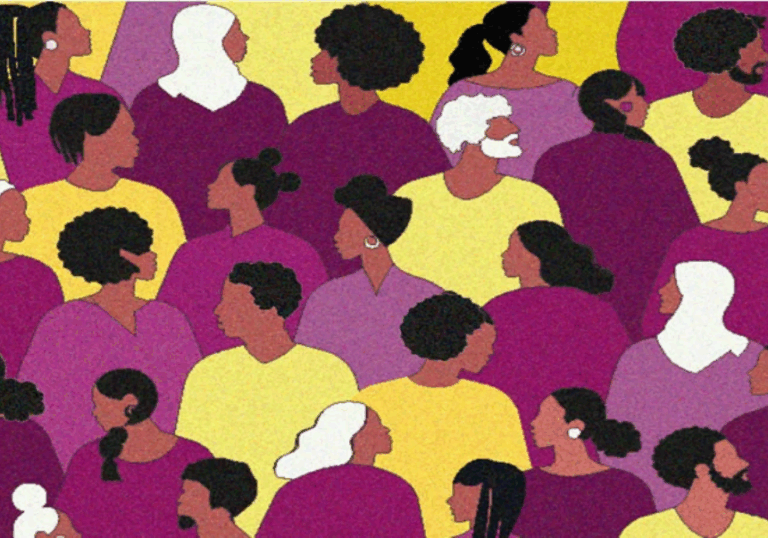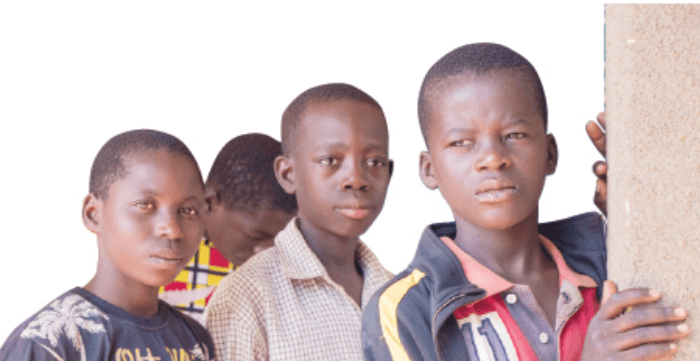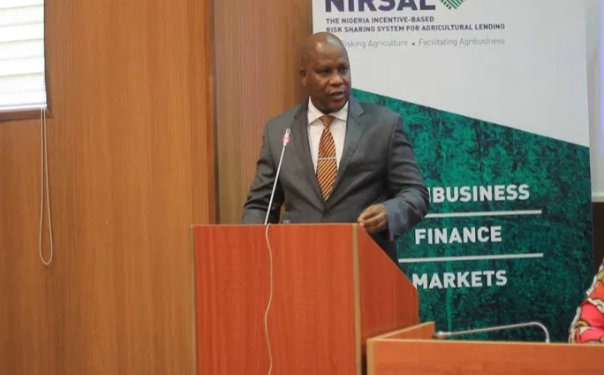Sixty-five year-old Oluwabukola Ilesanmi is the proprietress of Achievers Garden Nursery and Primary School in Abeokuta, Ogun State. She had run the school relatively smoothly since she established it 14 years ago. But since the Nigerian government closed all schools in March as part of the lockdown to contain the novel coronavirus, Mrs Ilesanmi’s school has not been able to pay workers’ salaries and its utility bills.
Hers is a small school with just over 80 pupils and nine teachers, but Mrs Ilesanmi said even bigger schools face the same challenges. No private school can declare profit in 2020, she said sadly, noting that the disease outbreak has crippled all private schools in Ogun State.
“Most parents are owing second term fees, we had to source for funds and struggle to pay the salaries for March. We hare been unable to pay for April as we speak and right now and we are looking at May salaries too,” she said
Mrs Ilesanmi told PREMIUM TIMES that the lockdown was too sudden, not allowing private school owners time to collect outstanding debts and the second term fees from which they could have paid their teachers and other workers.
“It is not like the business moved well before the outbreak. As a school owner, you have to keep sending letters to parents to pay their children’s school fees so you don’t stop paying staff. However, the pandemic has thrown a blow at the business,” she said.
To make matters worse, sending debtor students away is not an option, she said. “The parents will just enrol them in another school and you won’t be able to recover your money. This is a cross private school businesses bear in Nigeria.
“Even when we resume now, the parents will not want to pay the fees for the last term, which was the second term. Now that everyone is at home the rate of spending will increase, we have to be considerate and also plead with our workers,” she said.
She said payment of the April salaries of her staff would depend on how fast the parents pay up the fees for the disrupted second term. “You know that the government has been warning private schools against resuming for the third term academic session until the lockdown period is over, so how do we ask parents to pay?”
Mrs Ilesanmi’s experience is shared by private school owners across Nigeria. Some of them in Lagos, the Federal Capital Territory (FCT), Oyo, Rivers, Nassarawa, and Enugu states who spoke with PREMIUM TIMES for this story said the impact of the pandemic has been very hard on their operations.
The virus
The respiratory disease caused by a novel coronavirus (COVID-19) that was first detected in Wuhan, China, and has spread worldwide has continued to cause fear and uncertainty among humans. The COVID-19 disease was characterised as a pandemic by the World Health Organization (WHO) on March 11, according to the Centers for Disease Control and Prevention (CDC).
Apart from the health crises caused by this disease, it has also led to lockdowns and travel restrictions declared by governments to contain its spread. As the virus continues to ravage the world, businesses are shutting down and people are losing jobs as employers struggle to pay their workers.
In Nigeria, schools, just like businesses and religious centres, were shut since March 19, leaving the authorities to adopt alternative modes of learning for students at all levels.
The shutdown has been most felt by private school owners who struggle to pay salaries of teachers who like their students have been forced to stay at home.
READ MORE: SPECIAL REPORT: In Lagos school, parents who can’t afford childrens’ tuition, turn to recyclables
Over the years, private schools have gained popularity and acceptance in Nigeria because of inadequate public schools and their ‘failure’ in delivering quality teachings. In the last one and a half decades, private schools from elementary to tertiary levels have proliferated across the country as they position to fill the vacuum in the country’s education system.
However, the coronavirus-forced closure of schools has hit the private schools harder. Unlike the public schools which are run and funded by the government, the private ones depend on fees from their students for their operations.
‘New schools businesses not left out’
Effiong Eno started her private school, Efigen Kiddies Academy, in Abuja, last year. She said the outbreak of the virus and closure of schools disrupted the business and her personal plans for the school.
She said she has had to put “lots of things on hold and there is no hope in sight” as to when the disruption would end.
“Private schools were supposed to end the second term on April 8, but due to the pandemic, we were not able to write exams and round off.
“Based on the school calendar, we were supposed to resume at the end of April or first week in May for the third term. But now, we do not know when we are resuming,” she told PREMIUM TIMES.
Mrs Eno said many parents cannot pay children’s school fees because some companies are not paying their workers. “It is a chain, the parents are not being paid so how will they pay the schools? But until the school fees are paid we cannot start paying staff and settle our bills too.”
Veronica Ugbede is the proprietress of Siveglos International Academy in Nasarawa State. “Since last week, I have been calling parents that are owing us but it has been stories upon stories,” she said.
“We are frustrated and stranded. We were about wrapping up exams before they announced the closedown of schools, we had to take the scripts and results home to work on. But with the issue on the ground, we don’t know when we will resume,” she said.
Mrs Ugbede said one of the reasons that private schools do not have ‘steady hands’ as teachers is because of their delay in paying salaries.
“Once parents do not pay and we are unable to pay salaries, the teachers will definitely look for a better option and we cannot blame them because they have bills to settle. I still have five people on my payroll that I have not paid for last month, and we are in another month. It is over a month now since we closed and I was expecting alerts in the school’s account but nothing,” she said.
According to her, even before the coronavirus outbreak, it has not been easy running the school. “At times we pay salaries from other family sources and that is how we have been running the school for over eight years now. At times, some parents owe for two terms and when you send their children home they take them to other schools without paying,” Mrs Ugbede said, echoing Mrs Ilesanmi.
Mrs Ugbede said as a proprietor, she has not paid herself salaries in the last three months. “Government needs to understand that private schools are complementing their efforts on education, especially for the masses, so we need their support.”
Simon Amodu corroborated the testimonies of Mrs Ilesanmi and Mrs Ugbede. The examination officer at Topmost Grace Montessori School in Rivers State said a lot of private schools are struggling to pay salaries now, especially the ones that are not big.
He said the management of his school is paying half salaries to the workers. “Students are not in schools now and we have close to 35 teachers both in primary and secondary and over 300 pupils. Everybody was paid half salary because of the lockdown.”
Schools are asking for half payment
So how do the schools plan to address the challenges of finance and keeping their students learning at home? In fact, some schools have found the answer to the first poser in the second.
Most state governments have warned private schools against reopening for third term before they are shown the green light. But some of the schools have resorted to asking parents to pay half of the fees for the term ahead of resumption.
A parent who only identified herself as Mrs Modupe said she will be paying half of her child’s fees next week because the school requested for it.
“We were told to pay half of the school fees, and if they resume before the end of the term, we will balance it and pay other levies,” she said.
Another parent who spoke with our reporter said the same thing. “The schools said they have to pay teachers and you know teachers are still teaching through online classes. Most teachers forward the classwork and examples to us on WhatsApp, and we teach our children,” the parent added.
Accessible education, only remedy
The national coordinator for the Education Rights Campaign, Hassan Soweto, said the COVID-19 crisis is a clear testimony that private ownership of schools is incompatible with public interests and needs.
He said what Nigeria needs is a programme to make education accessible and affordable and that provides curriculum review and adequate staff, equipment and facilities for schools to ensure real learning.
“Education is inaccessible to many, leaving millions of children out of school, not only at primary and secondary levels but also at tertiary level. People are now too impoverished to afford the high fees (of private schools). Many school staff, including lecturers and teachers, will have their wages stopped while those lucky will be placed on half salary. Major job losses are looming in the private academic institutions just as we have seen in aviation, hospitality, oil and gas, and other sectors,” he said.
A public analyst, Lolu Elegbe, said Nigeria should have fixed the problems in its education sector 10 to 15 years ago.
“On the business side, it is more difficult right now. Private schools cannot force students to pay school fees, if the students are not paying school fees, it means the school is not generating revenue, meaning that it is almost impossible for them to pay salaries. The truth is that things are still going to be like this for a while before the COVID-19 pans out. Even if other things in the country go back to normal, parents may not allow their children to go back to school because you don’t know where the other children are coming from,” he said.
Govt sympathises
The spokesperson of the Federal Ministry of Education, Ben Goong, expressed sympathy with private school owners who are unable to pay their staff.
“Once you have a business, you need revenue to run it, and once that revenue stops coming, the owner will be faced with challenges, In business, people should try to make provisions for fallback. Some big schools were able to do this. For the ones that are crawling, I do sympathise with them,” he said indicating the government has no plan to bail out the schools.



